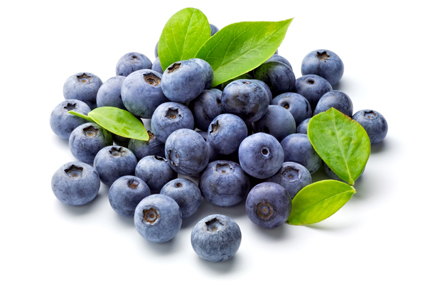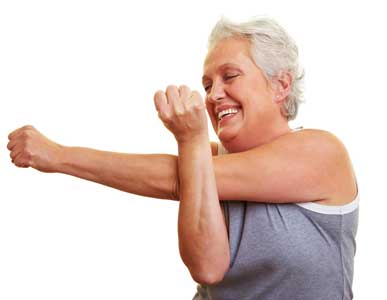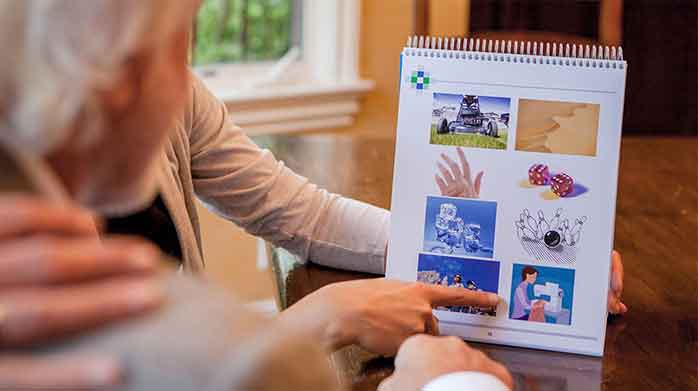The Art of Aging Well
We provide customized hourly and around-the-clock care to older adults so they can live happier, healthier lives at home.
Download
Our exclusive Balanced Care Method (BCM) is scientifically based on the world’s healthiest living population, the elders in Okinawa, a region in Japan where life spans over 100 years are not unusual. These elders are not only living longer, they are enjoying a better quality of life, where heart disease, dementia, cancer, and diabetes are rare.
At Home Care Assistance, we emphasize exceptional care to enhance quality of life and aging as a rich and meaningful stage of life.
Our caregivers receive training in our Balanced Care Method, which is composed of five critical components. They include:
 Healthy Nutrition promotes a high fiber, plant-based, low protein diet that emphasizes fruits, vegetables, and foods rich in Omega-3 fatty acids. Whole grains should include whole wheat, brown rice, oatmeal, and cornmeal. An important daily part of the Balanced Care Method includes multiple servings of vegetables and fruit. In addition to being rich in minerals and antioxidants, they also contain natural fiber, which helps proper digestion and provides a low-calorie sense of fullness. Soy-based foods are an excellent source of low-fat protein. They contain high levels of flavonoids, which protect against cancer and heart disease and maintain bone density and muscle mass. Plenty of water and teas are not only thirst quenchers, but a great way for the elderly to avoid dehydration. Healthy options include decaffeinated and herbal teas. Eight glasses of water should be a must for men and women daily. People should drink before being thirsty. Sipping teas and water all day, serving water with every meal, and including soups in the daily diet can help to keep hydrated. Coffee can be enjoyed in the morning, and some studies suggest that a moderate amount of coffee can prevent dementia. Limit coffee after noon to decrease insomnia.
Healthy Nutrition promotes a high fiber, plant-based, low protein diet that emphasizes fruits, vegetables, and foods rich in Omega-3 fatty acids. Whole grains should include whole wheat, brown rice, oatmeal, and cornmeal. An important daily part of the Balanced Care Method includes multiple servings of vegetables and fruit. In addition to being rich in minerals and antioxidants, they also contain natural fiber, which helps proper digestion and provides a low-calorie sense of fullness. Soy-based foods are an excellent source of low-fat protein. They contain high levels of flavonoids, which protect against cancer and heart disease and maintain bone density and muscle mass. Plenty of water and teas are not only thirst quenchers, but a great way for the elderly to avoid dehydration. Healthy options include decaffeinated and herbal teas. Eight glasses of water should be a must for men and women daily. People should drink before being thirsty. Sipping teas and water all day, serving water with every meal, and including soups in the daily diet can help to keep hydrated. Coffee can be enjoyed in the morning, and some studies suggest that a moderate amount of coffee can prevent dementia. Limit coffee after noon to decrease insomnia.
Dairy and meat contain protein and minerals, but they also contain saturated fat which increases risk for heart disease. Meat consumption can be kept to a 4 ounce serving (deck of card size) a few times a week. Choose lean cuts that are roasted or baked, rather than fried. Substitute olive oil for butter, and use low-fat milk and yogurts.
The elderly tend to develop a sweet tooth as taste buds fade. Refined sugars and sweets should have a limited role to avoid blood sugar spikes. Nuts and fruits are preferred, with honey and sweeteners. The amount of food we consume should decrease as we age, but the quality and nutritional value should increase.
 Physical Activity should focus on keeping seniors healthy as they age. Regular physical activity is essential to keep cardiovascular and muscular strength. Physical activity can include walking, swimming, stretching, light weights, dancing, golfing, gardening, and more. Stretching in particular helps maintain flexibility and joint function and is an activity that can be adapted to all levels of mobility.
Physical Activity should focus on keeping seniors healthy as they age. Regular physical activity is essential to keep cardiovascular and muscular strength. Physical activity can include walking, swimming, stretching, light weights, dancing, golfing, gardening, and more. Stretching in particular helps maintain flexibility and joint function and is an activity that can be adapted to all levels of mobility.
Mental Stimulation seeks to engage our seniors to boost intellectual power, preserve problem solving skills, and halt or reverse memory decline. Activities should include verbal and written skills, reading, being read to, conversations, arts, games, puzzles, and music.
 Mentally stimulating activities to keep seniors’ minds sharp can include switching up their routine, shopping, going to a museum, word association games, music therapy, out of the home activities, conversations, and memory games. Alternatively, Home Care Assistance offers in-home cognitive stimulation via our Cognitive Therapeutics Method – A series of over 300 activities designed to slow the progression of cognitive decline, aide in confidence building and socialization.
Mentally stimulating activities to keep seniors’ minds sharp can include switching up their routine, shopping, going to a museum, word association games, music therapy, out of the home activities, conversations, and memory games. Alternatively, Home Care Assistance offers in-home cognitive stimulation via our Cognitive Therapeutics Method – A series of over 300 activities designed to slow the progression of cognitive decline, aide in confidence building and socialization.
Social Ties keep us healthy. Close connections to family and friends provides us with emotional support and gives us a sense of purpose. This reduces depression and loneliness.
Conversation is an essential part of maintaining healthy relationships. If seniors become more isolated and depressed, encourage more sociability through conversation, daily calls and emails with family and friends, visiting, and senior center activities.
Calmness & Purpose. Seniors are better able to cope with stress, aging, and disease, when they have an inner sense of calm, and when they bring meaning and purpose to their lives, by engaging socially. The more they keep their social networks and favorite activities, the happier and healthier they stay. Feeling useful is critical in anyone’s sense of well-being.
Home Care Assistance is proud to train our caregivers in The Balanced Care Method and applying this program of senior care through our roster of certified caregivers.
Home Care Assistance….Changing the way the world ages.

Get Started With a Free Consult